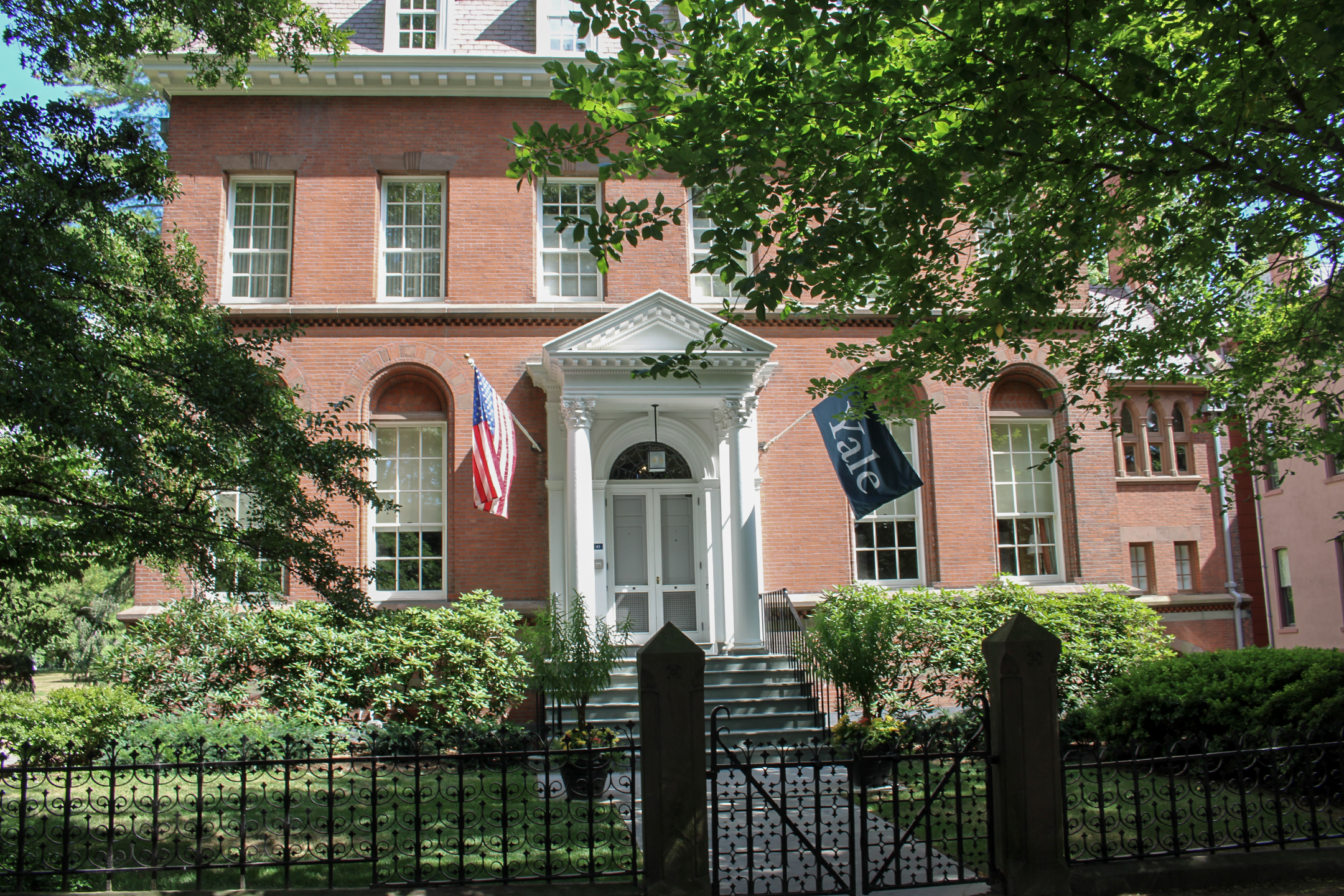As classes resume, Yale continues to evade Trump’s crosshairs
Students returned to campus relieved that Yale has avoided direct targeting but uneasy about the school’s prospects of remaining unscathed.

Ximena Solorzano, Head Photography Editor
Since President Donald Trump began his second term in January, his administration has waged an aggressive campaign to exert influence over elite universities, freezing billions of dollars in federal research funding, threatening accreditations and pressuring institutions into settlements that reshape campus policy.
Through it all, Yale has remained an exception.
Yale and Dartmouth are the only two Ivy League institutions from which the government has not punitively withheld federal funds. The other six schools have each faced punitive cuts to their federal grants from the Trump administration.
Since the beginning of July, Penn, Columbia and Brown agreed to concessions on policies relating to admissions, athletics, antisemitism and academics to restore their federal funds.
To students back on campus, relief about Yale’s relative stability is tempered by unease about whether Trump’s targeted measures against universities will come to New Haven.
“I feel sort of lucky that we haven’t been directly publicly attacked yet, but I guess I feel a little uncertain about what’s to come next because I’m not sure if the administration would change course and decide that we’re the next target,” William Mahoney ’27 said in an interview.
“When you think of the big three names of Harvard, Yale and Princeton, these are the bastions of liberal education that the current administration doesn’t have good feelings towards, and so part of me is fearful that we’ll be next,” Mahoney added.
In early spring, the Trump administration froze more than $400 million in funding to Columbia and $175 million to Penn. In April, the White House followed with a $2.2 billion cut to Harvard. Federal officials cited antisemitism, failures to maintain campus order and lack of “viewpoint diversity” as justification for the punitive measures.
In July, the White House restored the $175 million in funding to Penn after it agreed to remove former swimmer Lia Thomas’ individual records. Thomas is transgender. Penn also agreed to specify that its athletics department would “adopt biology-based definitions for the words ‘male’ and ‘female.’”
Columbia likewise agreed to pay a $200 million fine and enact sweeping policy changes in exchange for the return of federal grants terminated by Trump’s punitive cuts.
Trump has demanded at least a $500 million settlement from Harvard. Harvard has since sued the federal government over freezes to its federal research grants. The university’s president, Alan Garber, has publicly criticized the Trump administration’s moves against universities. Garber has indicated Harvard will not pay the $500 million fine.
Though University President Maurie McInnis accepted a Yale committee’s recommendation in fall 2024 that university leaders refrain from taking public political stances, Yale joined 17 other universities in filing an amicus brief supporting Harvard’s case against the federal government in June.
During the summer, when a Republican proposal to increase the tax on universities’ endowment gains moved through Congress, McInnis prominently announced her opposition to the provision and urged Yale community members to advocate against it. Although the ultimate tax-and-spending bill, signed into law on July 4, set the tax at 8 percent — lower than the originally proposed 21 percent — the University has announced a series of budget-tightening measures in its wake, including hiring freezes and delayed construction projects.
“I’m very fortunate that our school has not been as deeply affected as some of these other schools,” Jack Ludwick ’28 said in an interview. “My financial aid was never at risk, my housing situation was never at risk. I’m really grateful that none of those things have been dramatically affected so far.”
Though students interviewed by the News were relieved Yale had thus far avoided direct penalties, some questioned the price.
When Trump first took office in his second term, McInnis told the News that her priority was to work with legislators behind the scenes and avoid making public statements. The University also invested heavily in lobbying efforts, outspending all but one of its Ivy peers on lobbying during the second quarter of 2025.
Zach Pan ’27 described the Trump attacks as “100 percent political” and said that other universities were targeted due to their presidents “putting their foot in their mouth.”
“Yale’s disciplined and drama-free approach has shielded us for now,” Pan said.
Despite feelings of unease, the prospect of the first day of classes still carried the usual jubilance of reunions and new beginnings for interviewed students.
For now, Yale remains largely untouched. But many students feel that could change at any time.
“He could finger-paint a middle finger to Yale anytime he wants,” Conor Webb ’28 said of Trump. “We’re not spared.”
In the 2024 fiscal year, Yale received approximately $900 million in grants from the federal government, according to the provost’s office.
Jonas Loesel contributed reporting.







